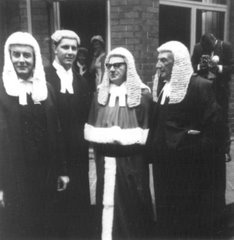10. Can You Forgive Her? (Anthony Trollope). Obviously, my bias is for wordiness, and sentences-as-titles are often favorites. But this one is memorable not just as a sentence, but as an interrogative. What's the best 20th century book with a question in its title? Who Moved My Cheese? Trollope's is the second best interrogative title of all time, topped only by...
9. What Will He Do With It? (Edward Bulwer-Lytton). How Awesome Is This? Points for ambiguity, long-windedness without pomposity, and comically obvious (to modern eyes) sexual double entendre. Deductions for Bulwer-Lytton being an unread and probably unreadable goliath, a kind of dorky caricature of a Victorian author.
8. The Egoist (George Meredith). Maybe it's just me, but who doesn't want to read a book about an egoist? (I haven't yet, but will soon). Meredith's title shows off the kind of terse directness that alternated with the more famous volubility of classic Victorian titles. I don't think the straightforward "The X" format is quite so popular now, but it had a terrific heyday in the 19th century.
7. Wuthering Heights (Emily Bronte). The best place-name title in 19th century British fiction, edging out Mansfield Park and flat-out slaughtering Middlemarch. Of course Middlemarch is probably a better novel than anything on this list, but the title has a kind of dense, ungainly obscurity that surely drives away far more readers than it entices.
6. The Odd Women (George Gissing). I haven't read this, either, but I want to. "Odd" is just a great word no matter how you look at it, and this simple title allows it to take rare full billing.
5. Jude The Obscure (Thomas Hardy). Wins the character-name title award. This has such a nice ring to it that my freshman-year hallmates took to calling a preppy douchebag named Jude on the third floor "Jude The Obscure," which eventually got whittled down to just "The Obscure." The book is, of course, great as well, but actually my least favorite of the major Hardys -- not so the title.
4. Our Mutual Friend (Charles Dickens). Beats out Bleak House and Great Expectations for the best Dickens title. Not flashy or immediately evocative, but subtly intriguing... An interrogative without the question mark. Whose mutual friend? Mine? Dickens's? What's going on?
3. Dracula (Bram Stoker). According to Wikipedia, Stoker probably didn't get the word from the historical Vlad the Impaler. He just stumbled across the Romanian word dracul and decided it was pretty badass. It was: this is a very good read, but half the reason Dracula continues to occupy so much cultural space, even in the 21st century, is because Stoker didn't call the book "Count Vampyre."
2. Far From The Madding Crowd (Thomas Hardy). Before the cliche, there was the book. Normally I hate gerunds (more on that, perhaps, later), but this one transcends that bias.
1. He Knew He Was Right (Anthony Trollope). Some of the greats had title-writing in their blood (or at their publisher's office); some didn't. Hardy had it; George Eliot didn't (besides Middlemarch, there is the archaically boring Mill on the Floss, the laconically boring Adam Bede, and the, uh, boringly boring Silas Marner, which, in fact, is probably the comic archetype for dull-sounding Victorian titles assigned in school).
Trollope was an absolute master of the art. Besides the two represented here, there are The Way We Live Now, Ralph The Heir, Is He Popinjoy?, and An Old Man's Love. But this one takes the cake--not only is it a full sentence, it's a brilliantly ambiguous one, a sentence that already takes place within (and yet also without) the main character's brain. It's a title that could be an opening line. This may be a completely obscure Trollope novel, number 28 of 45, or whatever it is, but I will read it just because of the title.



